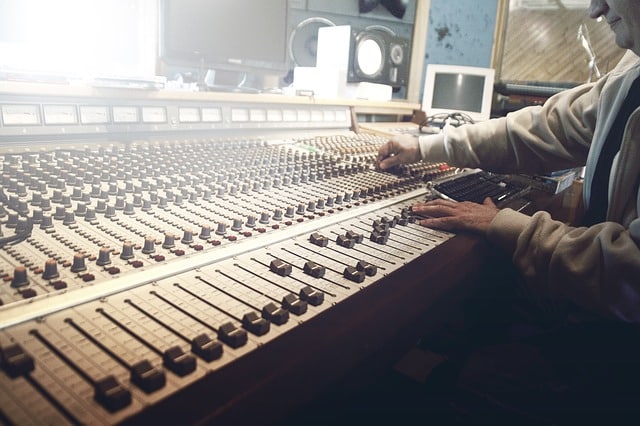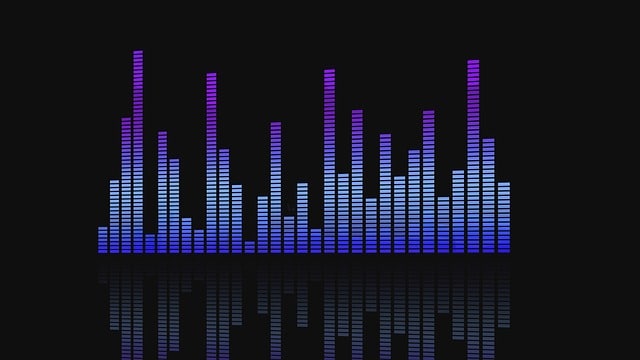
Equalizers are essential in a recording studio.
An equalizer is a system that allows the equalization of a signal. It may be a physical device or a computer program .
Before moving forward, it is important to mention that equalizing is the action carried out by adjusting the reproduction frequencies of sound or another signal within certain values. Equalization, thus, affects the perception of these signals.
What is sound
Sound waves are produced by the vibration of a body, propagating through an elastic medium (such as air ). In the ear, these oscillations are transformed into mechanical waves and are perceived and interpreted by the brain.
The human ear can pick up sounds between approximately 20 and 20,000 hertz or hertz . It should be noted that 1 hertz is equivalent to 1 cycle per second , each cycle being a complete oscillation of the wave .
What hertz measure, in short, is the frequency (the repetition of the process per unit of time). Low-frequency sounds are bass , while high-frequency sounds are high-pitched .
How an equalizer works
An equalizer makes it possible to regulate the volume at different frequencies. In other words: it allows you to modify the frequencies of a sound wave to shape the sound.
There are multiple types of equalizers. A first major classification differentiates, as we indicated at the beginning of this article, between physical hardware equalizers and virtual equalizers ( software ). In addition, a distinction can be made between parametric equalizers , semiparametric equalizers and graphic equalizers , among others.
The equalizer divides the spectrum into bands and boosts or cuts a range of frequencies or certain specific frequencies. It is important to keep in mind that it does not create new frequencies, but rather works with existing ones. The result of equalization involves changes in the character and tone of the sound.

The equalizer works on the different frequencies of the sound.
The importance of filters
When using an equalizer, different filters are applied. These filters are actions that affect the frequencies in question in various ways.
The high-pass or high-pass filter , for example, cuts the low frequencies, allowing only the high frequencies to pass. The low - pass filter , on the other hand, enables the passage of low frequencies, cutting the high frequencies.
The band-pass or band-pass filter , for its part, allows a specific range of frequencies to pass, attenuating the rest. Therefore, it cuts both high frequencies and low frequencies.
Corrective or creative use of the equalizer
The equalizer can be used correctively if you want to eliminate unwanted frequencies from a recording . This equalization, also known as subtractive , is carried out to clean the signal, removing vibrations , hiss, etc., but ensuring that the sound continues to be perceived as natural.
Another option is to use the equalizer in a creative or additive way. In this case, volume is added to those frequencies that are intended to be enhanced.
Equalizers, in short, are an essential tool when recording sound. It doesn't matter whether it's music , voice or ambient sound: with an equalizer, you can always optimize the recording result.
